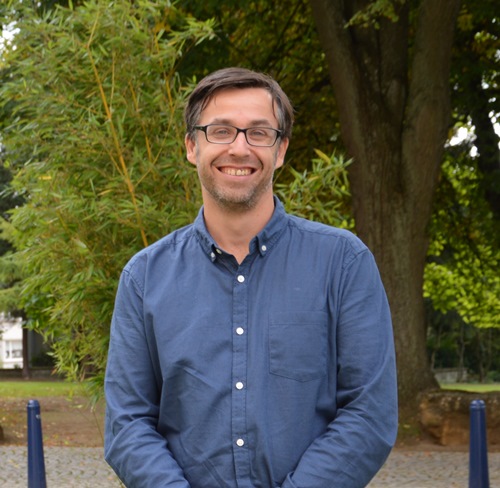
“The Natural State” is the official nickname of the state of Arkansas in the South Central United States. Fittingly, the Luxembourg Institute of Science and Technology (LIST) and the University of Arkansas have been collaborating since 2015 to make improvements to the “natural state” of various electronic components. An INTER Mobility project is involved.
Professor Laurent Bellaiche, one of the world’s leading experts for designing and simulating functional oxides in computer models, teaches and researches at the University of Arkansas, in Fayetteville. Born in France, Bellaiche has lived and worked in the US since 1995. He and the Spanish materials scientist Jorge Íñiguez, who has lived and worked in Luxembourg since 2015, have been acquaintances for more than 20 years. They first met when Íñiguez was doing his PhD, for which he spent three months working with Bellaiche in the US. Since then, the two have continued their scientific collaboration, as evidenced by their regular publication of papers in respected scientific journals including Nature, Nature Communications, and Physical Review Letters.
The materials that interest the two researchers are essential to many devices and electronic components, such as ferroelectric capacitors or piezoelectric transducers and actuators. Only in the rarest cases do components of this kind have an acceptable “natural state”, because they almost always contain the toxic heavy metal lead. This inspired Prof. Íñiguez to launch a project aptly called GREENOX. The project looked for functional oxides that are free of toxic lead but still exhibit the functionality needed in industry.
Thanks to funding through the FNR’s INTER Mobility scheme since 2015, the two scientists were able to invest a great deal of brain power into these developments and to put in place entirely new computer models for simulating novel materials. Other colleagues can now test their new capabilities in the laboratory.
“We are both computer guys,” says Íñiguez, who stresses the importance of computer simulations in the development of novel materials. “Computer simulations are much cheaper than producing and testing every material variant in the lab.” Yet, the simulations are not exactly easy to implement either, and there is one specific problem:
“Generally, most predictive simulations work under the assumption of extremely low temperatures. If little thermal energy is present in the system, it is easier to model. However, we want to produce materials that operate reliably at room temperature and will be adopted in industry.
So our simulations have to represent room temperature cases. But simulations like that are millions of times more demanding and challenging,” Iñiguez explains.
Nevertheless, he and Bellaiche have accomplished this million-times more complicated task. In particular, they focused on antiferroelectric compounds for dielectric capacitors that allow energy storage.
Íñiguez, who was recruited at LIST in 2015 by Prof. Jens Kreisel, the vice-rector for research of the University of Luxembourg, describes the importance of the INTER Mobility funding: “It is of inestimable value to be able to spend time in the same place with a colleague like Laurent Bellaiche. You are more focused and more disciplined during this precious time. And it is an inspiration and motivation for the entire team when an international hotshot comes to visit and gives feedback at team meetings. It’s fantastic!”
When Íñiguez thinks of the INTER Mobility funding line today, he can’t help but smile:
“I think the original idea was to have a couple of ‘old hands’ support the inexperienced youngsters in Luxembourg with their advice, but things haven’t been so unilateral for some time now. Luxembourg has come into its own in many scientific fields. Today there is a lot of knowledge and experience flowing from Luxembourg into the world – including, of course, Arkansas,” Íñiguez remarks, not without some pride.
Both researchers plan continuing their collaborative research in future projects. Íñiguez has secured additional funding through the FNR’s CORE and INTER research programmes.
INTER Mobility
The aim of the INTER mobility programme is to promote the exchange between research groups from public research institutions in Luxembourg, and leading research groups abroad.
DOMAIN: Materials, Physics & Engineering
FNR COMMITTED: 85,000 EUR
PERIOD: June 2015 – December 2019








